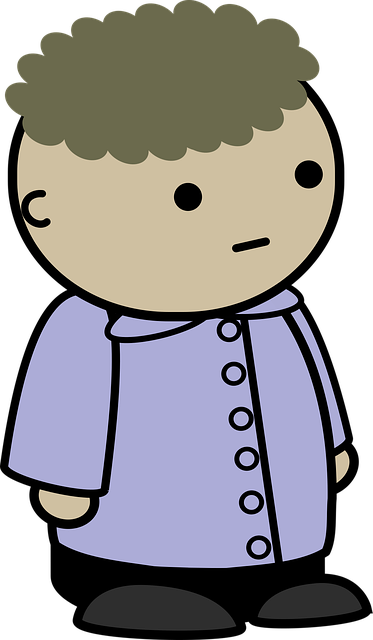Recognizing teen depression symptoms like persistent sadness, changes in appetite, and thoughts of suicide is crucial. Subtle shifts in routines or social interactions may indicate underlying issues. Encouraging open dialogue, seeking professional help after two weeks, and understanding teen depression causes are vital for support. Creating safe spaces, fostering resilience, and involving supportive networks aid recovery. Teens have access to confidential resources, treatment centers, therapy, and peer connections for healing.
Understanding teen depression is crucial for fostering healthy development. This article delves into the common symptoms and potential causes behind this growing concern, offering insights that can help parents, educators, and peers recognize and address emotional pain in teens. By exploring effective intervention strategies and available resources for teen depression support, we aim to equip readers with tools to make a positive impact on young lives.
Recognizing Teen Depression: Common Symptoms
Recognizing teen depression is a crucial step in providing much-needed support. Some common symptoms include persistent feelings of sadness, loss of interest or pleasure in activities once enjoyed, changes in appetite and sleep patterns, fatigue, difficulty concentrating, and thoughts of death or suicide. These signs may manifest differently in every teenager; some might exhibit them physically, while others may express their distress through behavior changes.
It’s important to remember that teens often struggle with expressing their emotions, so observing subtle shifts in their daily routines or social interactions can be valuable indicators. If you notice these symptoms persisting for two weeks or more, encouraging open dialogue about mental health is essential. Teen depression support starts with creating a safe space for them to share their feelings and seeking professional help when needed.
Potential Causes Behind Teen Emotional Pain
Teen depression goes beyond feeling sad or lonely for a few days. It’s a complex condition with various potential causes deeply rooted in a teenager’s life. Hormonal changes, often a significant factor, can lead to emotional volatility and make teens more susceptible to depression. This is especially true during puberty when bodies undergo rapid transformations.
Social factors play a crucial role as well. Teens might struggle with peer pressure, academic expectations, or family dynamics. The constant demand for social media engagement and the fear of missing out (FOMO) can also contribute to feelings of isolation and low self-esteem. Lack of teen depression support networks, either at home or school, can exacerbate these issues, making it essential to foster understanding and reach out for help.
Supporting Teens: Strategies for Intervention
Supporting teens with depression requires a multifaceted approach, as each young individual’s experience is unique. The first step in providing help is to create an open and non-judgmental environment where they feel comfortable discussing their feelings. Active listening and empathy are crucial; validate their emotions and let them know you’re there to support them without pressure or expectation. Encouraging self-expression through writing, art, or music can also be therapeutic.
Intervention strategies should aim to foster resilience and coping mechanisms. This can involve helping teens identify triggers, teaching mindfulness and relaxation techniques, and promoting regular physical activity and a healthy sleep routine. Engaging with professionals like therapists or counselors is essential; they can provide specialized support and guidance. Additionally, involving family and friends in a supportive network can significantly impact recovery, ensuring the teen feels loved and understood during their journey towards healing.
Seeking Help: Resources for Teen Depression Support
If you or someone you know is a teenager struggling with depression, it’s crucial to know that help is available. The first step towards recovery often begins with reaching out and seeking support from various resources dedicated to teen depression support. Many organizations offer confidential helplines staffed by trained professionals who can provide immediate assistance, guidance, and referrals to specialized treatment centers or therapy options. Online platforms and social media groups also serve as valuable spaces for teens to connect with peers going through similar experiences, fostering a sense of community and understanding.
Community mental health centers, schools, and primary care providers are other entry points for accessing teen depression support. These institutions often have programs specifically tailored to address youth mental health concerns. Additionally, peer-led support groups and family therapy sessions can be beneficial in creating a supportive network that encourages open communication and promotes healing. Remember, seeking help is not a sign of weakness but rather a courageous step towards reclaiming one’s well-being.
Teen depression is a serious issue, but by recognizing common symptoms and understanding potential causes, we can provide much-needed support. Implementing intervention strategies and utilizing available resources can help teens navigate their emotional challenges. Remember, early detection and appropriate assistance are key to ensuring teens receive the care they deserve. With the right approach, we can foster a supportive environment that promotes healing and guides them towards a brighter future. Accessing teen depression support is an essential step in making a positive impact on their lives.
